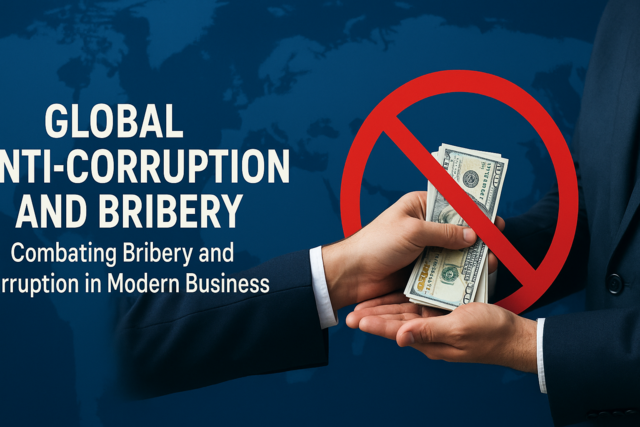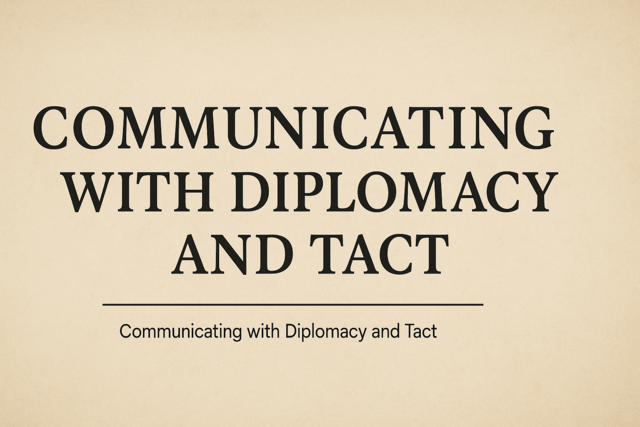Professional standards are common and are usually expected without question by employers, industry leaders, and your peers. You may even adhere to them without realizing it because it is simply a logical and normal thing to do. What you may not even consider, then, is that those professional standards are often heavily influenced by ethics.
The ethics found in procurement management are much like the ethics found in any profession or in society. They determine what is acceptable and what isn't, as well as the reasoning behind such qualifications. This article will explore what ethics does in procurement management and the effects it has on the profession. Topics will include an explanation of ethics in general, how to develop a professional code of ethics, and how to apply it in certain situations.
Ethics a concept that is commonly associated with the study of philosophy and the philosophers who study it. It is basically a system or collective of principles dealing with the values that impact how people are supposed to live their lives. For centuries, people have debated ethics and its varying schools of thought in an effort to determine whose interpretation is the truest version of ethics. Some argue the rationale behind ethics is based upon aspects of environment, while others claim humans have a natural ethical reasoning. There's enough debate to last for centuries more, but the basis is that ethics are a guiding factor in human actions.
Today, most people simply apply ethics as a way to determine what actions are considered good or bad in society. Things that are considered �good' are considered ethical and the people who do those things are also considered �good' and ethical. Likewise, those who do �bad' or unethical things are therefore �bad' and unethical. Much of the ethical standards that are present today have been shaped by society's standards for �good' and �bad', which is why somethings are acceptable and others are not. These standards are also called �morals'--principles dictating right and wrong behavior, with moral equaling �right' and immoral �wrong'.
In the business world, ethics is mostly applied to practices and policies. Companies who have ethical practices and policies are considered to be �good' in the public eye. Following laws and regulations, working with other businesses that are also ethical, using ethical resources, treating their employees well, etc. are all things that can give a business an ethical reputation. Unethical �bad' businesses who have a negative reputation often have done the opposite: bribery, discrimination, poor treatment of employees, or just general corruption in their leadership. Even a single incident of unethical behavior, once discovered by the public, can change society's view of the business and compromise their future.
In Procurement Management
Since it is the procurement officer who sets up the supply chain and brings suppliers and businesses together, they are also often responsible for maintaining the ethical integrity of the entire relationship. It can be overwhelming in some cases to have that much responsibility on top of your existing job duties, especially if you are unaware of the unethical practices of someone in the chain. However, it is necessary and the procurement team should still try to do their best to keep all actions in line with an ethical standard. To do so, most experts recommend having five different components in place to help:
-
Ethics Training--Training or educating employees in ethics can help them understand the impact their actions have on the business and what they should do. Most businesses use such programs as a way of introducing new policies and guidelines on a large scale, as it can open up opportunities to clear up miscommunications or misunderstandings amongst the staff. There are those who claim that ethics training isn't worth it because it fails to acknowledge situations that can cause internal ethical conflict which makes ethical decision making even harder to do. There are also those who claim the services providing these training programs are too general and lack information for certain groups.
-
Ethics Policies--Policies regarding ethical practices are the most common and are sometimes the only component listed here that a business or procurement team uses. They're written down and accessible to everyone, so it's harder for people to claim that their actions did not violate the standards the policies lay out when they actually did. Most ethics policies involve a code of conduct for employees; a procurement team may have their own that is specific to them in addition to one laid out by the business they work for, but the two should not contradict each other. Policies should also be checked and updated to ensure that they are ethical and in line with the company's.
-
Checks and Balances--A system of checks and balances prevents the responsibility of keeping everything ethical from being put on one person's shoulders. Everyone has their role to play in keeping each other in line, preventing questionable actions or decisions to slip past. Such a system only works if everyone is doing their part and is willing to adhere to the same standards.
-
Ethics Ombudsman--An ethics ombudsman is someone who is able to handle instances of unethical behavior in the group and keep everyone in check. This is usually someone who is ethically sound themselves and acts as a �moral compass' for the rest of the team. A person who plays this role should be able to remain neutral in situations--not play sides because of existing relationships--and is willing to deal with ethical violations throughout the group's hierarchy. It can be very intimidating to confront someone with authority who is being unethical, so the ombudsman is sometimes someone who is somewhat removed from the group's power structure (e.g. a third party).
-
Auditing--There's a record of activities in procurement that can be analyzed for any discrepancies which may suggest unethical behavior(s). The documentation literally creates a paper trail of your actions, so it's far harder to hide anything questionable from someone who knows what they're looking for. Someone outside of the team will usually conduct the audit and will look for errors and other red flags that cannot be easily explained under normal circumstances. Audits should be done regularly to both prevent and deter unethical behavior within the procurement team.
As mentioned, a code of conduct is often the primary ethical policy found in business and in procurement. It's also referred to as a code of ethics or of practice and acts as guidelines for ethical and moral behavior within the business. People will often have a code of conduct for their personal lives that often follows the same ethical standards found in society; unless one is unethical, personal and professional codes of conduct do not often conflict with one another. However, there is often some degree of ambiguity to allow room for interpretation based on the circumstances of a situation--hence why they are guidelines and not strict rules. Too much rigidity in a business' code means that people are going to be less inclined to follow them and will create their own.
So how does one go about creating a formal code of conduct for a procurement team? Usually, it involves taking into consideration existing ethical standards (e.g. society) and applying them to procurement practices. The code isn't going to be very effective if it isn't appropriate to the topic, now is it? Start with what is and isn't appropriate socially, in the business, in procurement, etc. What is going to be included in the code should be written down--most use a simple list--and it should be as clear as possible to avoid misunderstanding. You can revise as you go, but you still want to make sure that you're getting it down in one spot that can be shared.
From there, you can determine how violations are reported and who is responsible for overseeing reports. Are they able to be ethical and adhere to the code themselves? Is it someone within the team or outside of it? Are reports anonymous? What information is needed for a report and how do you tell if it is a legitimate claim and not an instance of retaliation against someone? Such information is needed to ensure that the code is going to be enforced and taken seriously, and that violations will be treated the same. Again, you can pull inspiration from codes of conduct found elsewhere if you're unsure of what to do.
-
Third Party Violations--In some cases, the violation may be with someone the procurement team is working with but isn't a part of the team. This can include suppliers, business leaders/employers, and peers from other departments. While you cannot control what actions those people take, you can control how you interact with them. The code should take into account those relationships and what the procurement staff can do in the event of unethical behavior from the other person(s). Things like precautions and solutions to such situations should be included, as well as how to prevent any adverse effects on the procurement team or their work.
Once the code is laid out, it should be reviewed for issues and input before being finalized. Get all members of the procurement team involved if needed, as they are the ones who will be impacted by it the most. Clarify the language and make adjustments where needed; you don't want to implement a formal code only to discover it has a massive loophole that allows for some seriously unethical behavior to occur without reprimand. When it is finalized, it should be made available to everyone--an employee handbook is usually the best place, as everyone tends to have access to it. Major changes to the team, the business, the procurement industry, etc. should prompt a review of the code to make sure it is still applicable.
Conflicts Of Interests
A conflict of interest is a situation where a person's ability to be impartial is called into question due to their own personal interest. They're basically unable to remain neutral or set aside their own interests for the sake of their responsibilities to a third party. An example would be an employer hiring a friend or family member for a major position in their business over someone who is more qualified or actually qualified for the job (a.k.a. nepotism). Instances where there is a conflict of interest--or a potential one--are often viewed as unethical because they cloud people's judgement and go against the code of conduct they're expected to adhere to.
In procurement management, conflicts of interest tend to happen when a procurement officer plays favorites with their decisions. Choosing a supplier who happens to be a friend or relative, for example, is common. It's not always a bad thing, as that supplier may still have been the better option and sometimes it's the only feasible option depending on the circumstances. If there's only one supplier operating in your state/region/country that has the item or service that you need to procure and they just so happen to be your cousin--oh, well! However, that does not mean that they are always going to be good. Your friend isn't going to be the best choice if it turns out that all of their products are of a poor quality, not what you need, or have something seriously wrong with them (e.g. were illegally acquired). Such a decision can have serious consequences and really isn't worth it if there was a far better option available. Addressing conflicts of interest requires managing them on a case by case basis and understanding the effects that your bias can have. Checks and balances to prevent serious consequences and to provide some degree of neutrality within the group are recommended--e.g. having someone else sign off on major decisions like choosing a supplier.
























